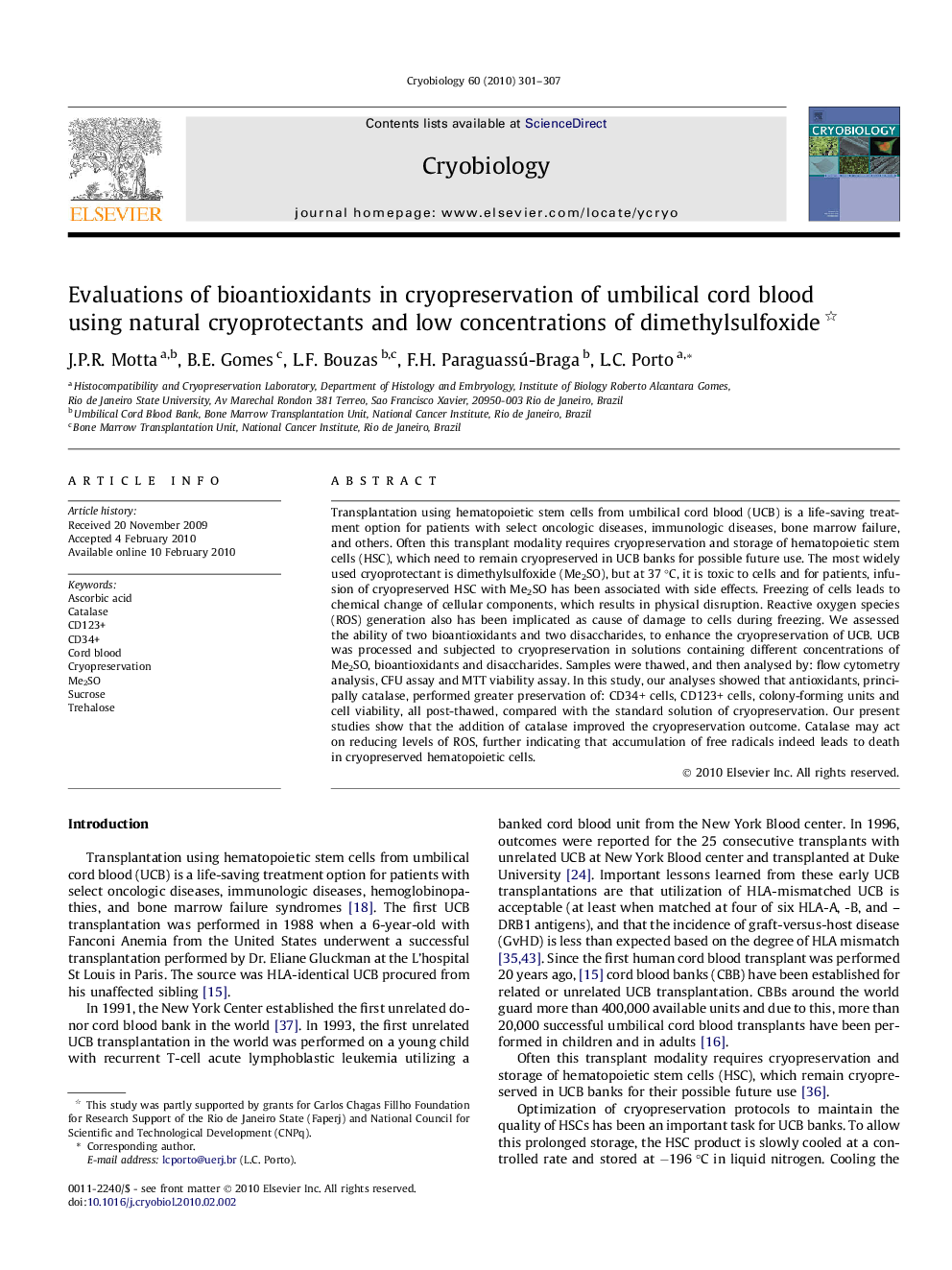| کد مقاله | کد نشریه | سال انتشار | مقاله انگلیسی | نسخه تمام متن |
|---|---|---|---|---|
| 2168735 | 1549447 | 2010 | 7 صفحه PDF | دانلود رایگان |

Transplantation using hematopoietic stem cells from umbilical cord blood (UCB) is a life-saving treatment option for patients with select oncologic diseases, immunologic diseases, bone marrow failure, and others. Often this transplant modality requires cryopreservation and storage of hematopoietic stem cells (HSC), which need to remain cryopreserved in UCB banks for possible future use. The most widely used cryoprotectant is dimethylsulfoxide (Me2SO), but at 37 °C, it is toxic to cells and for patients, infusion of cryopreserved HSC with Me2SO has been associated with side effects. Freezing of cells leads to chemical change of cellular components, which results in physical disruption. Reactive oxygen species (ROS) generation also has been implicated as cause of damage to cells during freezing. We assessed the ability of two bioantioxidants and two disaccharides, to enhance the cryopreservation of UCB. UCB was processed and subjected to cryopreservation in solutions containing different concentrations of Me2SO, bioantioxidants and disaccharides. Samples were thawed, and then analysed by: flow cytometry analysis, CFU assay and MTT viability assay. In this study, our analyses showed that antioxidants, principally catalase, performed greater preservation of: CD34+ cells, CD123+ cells, colony-forming units and cell viability, all post-thawed, compared with the standard solution of cryopreservation. Our present studies show that the addition of catalase improved the cryopreservation outcome. Catalase may act on reducing levels of ROS, further indicating that accumulation of free radicals indeed leads to death in cryopreserved hematopoietic cells.
Journal: Cryobiology - Volume 60, Issue 3, June 2010, Pages 301–307